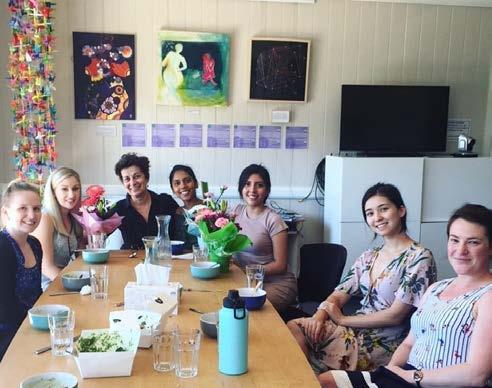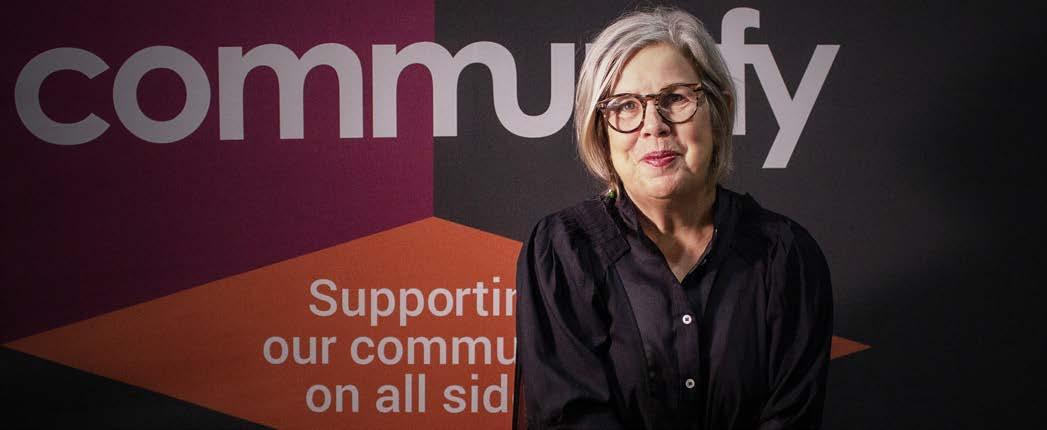Lived Experience To be counted as a client, a person must have received at least one contact with the service, during a non-administration related service provision. For example, brief intervention, counselling, education or care coordination.
Peer Mentor Program The EDQ Peer Mentor Program (PMP) takes place twice per calendar year and aims to supports people who are recovering from eating issues. In each program a selection of mentors will provide support for the mentee over a period of five to six months; a commitment to regular mentoring contact agreed to by the mentor and mentee for the duration of the program. Mentors are required to attend comprehensive training delivered by
Mentors and Mentees made
our PMP coordinator and participate in monthly one-on-one supervision to provide an avenue to discuss their mentorship and boundaries, ensuring they remain safe throughout the program. The design and structure of the Peer Mentor Program is based on best practice national and international standards from other mentoring programs. Eating Issues Practitioner Emily acted as coordinator throughout the two programs.
2,425
Round 1: July - December 2018
Eleven mentors and eleven mentees were matched and began the program, as well as two senior mentors. One mentee was unable to complete the program due to personal reasons, and her mentor therefore also did not complete. Two senior mentors began and completed the program. Completion rate matched pairs: ten out of eleven
Phone calls between matched couples
Round 2: January - June 2019
Seven mentors and seven mentees were matched and began the program. Two mentors, and one mentee left the program before completion. Two senior mentors began and completed the program. One senior mentor took on a mentoring role. Completion rate matched pairs: six out of seven (with one senior mentor)
At the end of each program we receive feedback from our mentors and senior mentors regarding their own wellbeing and recovery in the context of mentoring relationships. This is what some of our mentors and senior mentors reflected when asked about their learnings and perceived benefits of being a part of the program: From the mentors:
“It was empowering to share my story and it helped to reaffirm my recovery” From the mentees:
“I am so grateful for this opportunity! I was able to develop such a wonderful connection with my mentor and gained so much from the experience” “This experience has given me hope and helped me learn and grow through connecting shared experiences and friendships” 18
Mentors and mentees pictured here with EDQ facilitator Emily
Eating Disorders Queensland











